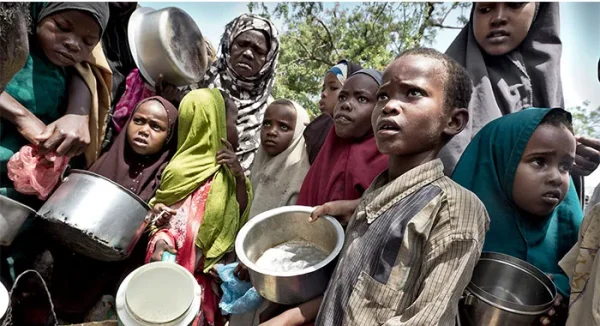A new report from the 2024 Cadre Harmonise indicates that over 31.8 million Nigerians are currently experiencing acute food insecurity, ASHENEWS reports.
This alarming figure was disclosed during a Joint Review Meeting on the implementation of food systems in Nigeria, held from August 26th to 27th, 2024.
The Director of Press and Public Relations at the Ministry for Budget and Economic Planning, Julie Osagie-Jacobs, highlighted the findings at the meeting, which gathered key stakeholders from organizations such as the Food and Agriculture Organization (FAO), GAIN, GIZ, and Agsys.
According to the report, the food insecurity crisis has been exacerbated by rising food commodity prices following the removal of fuel subsidies, further compounding malnutrition among women and children in Nigeria.
The report also identified security challenges as a major factor placing millions of Nigerians in a vulnerable situation.
Stakeholders at the meeting emphasized the need for a multi-sectoral approach to address food security challenges, advocating for collaboration across sectors, including the involvement of civil society organizations and the private sector, to enhance the reach and impact of nutrition efforts.
The partners pledged their unwavering support to transform Nigeria’s food system.
The Permanent Secretary of the Ministry of Budget and Economic Planning, Dr. Emeka Vitalis Obi while declaring the meeting open, stated that the objective was to review the status of system implementation in Nigeria.
He noted the importance of presentations from Ministries, Departments, and Agencies (MDAs) on the progress and activities related to transformation pathways.
Dr. Obi acknowledged the support of development partners, particularly GIZ and others, for their commitment to advancing the food system in Nigeria.
He stressed that their collective efforts would continue to foster innovative solutions to strengthen the country’s systems.
The National Convenor of Food Systems in Nigeria and Director of Social Development at the Ministry of Budget and Economic Planning, Dr. Sanjo Faniran, expressed gratitude to all stakeholders for their dedication to improving the food system.
He added that the review meeting aimed to identify gaps, successes, challenges, and provide recommendations, as well as facilitate peer review among MDAs.


